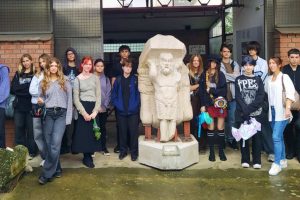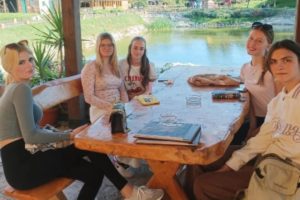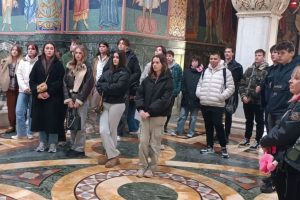
How to Understand our Children and Help Them Grow up.
- Posted by Antoni MP_Barili
- Categories Blog
- Date May 25, 2020
The goal of every parenting is to make the child into an independent, noble, good, worthy and healthy person capable of loving and being productive.
During growing up, children go through different life situations and through them learn what life is and how to survive in it. Getting to know life and other people, the child learns to know themselves.
Mutual relationships in the earliest years of life write a series of emotional lessons.
Since the earliest emotional memories arise at a time when children cannot speak about their experiences, at the moment when emotional memories return in later life, there is no adequate number of articulated thoughts about the response we are preoccupied with. One of the reasons for confusion with our emotional outbursts is that they stem from the early period of our life when things were unknown to us, and we had no words to describe the events we needed to understand. We can have confused feelings, but not words for the memories from which they originated.
Sometimes we don’t understand our children and we feel great responsibility to help them. We also cannot overcome our worry and calm our emotions.
They don’t understand us either. They don’t comprehend our well-intentioned suggestions, they get angry and resentful.
Puberty is the period when misunderstanding and disagreement between parents and other adults with children culminates.
If we start from the fact that the more aggressive people are as beings, the deeper the fear in them of something, then we can position ourselves differently. To try to understand what they are so afraid of.
Children ask us to understand and love them as they are. To love them even when they don’t meet our expectations. To love them unconditionally.
It is said that when we save someone from drowning, we must not approach them from the front and put ourselves (our ideas, concepts) in front of them…we must put ourselves and our needs, ideas, in the background and approach them that way. If we do otherwise, they will drag us down, i.e., we will enter into conflict with them. We must hear them. Once we learn to listen and hear, it will be easier for us to communicate and reach agreements with them.
This is especially difficult for parents who have calmed their fear of bad outcomes by interfering in all their children’s problems and solving them. Their children, even more than others, have the need to defend their freedom. To do something their own way, even if it might be wrong. It’s important to them that their will wins and not their parents’ will. This behavior additionally intensifies parents’ fears that the child will not be successful, healthy, good…etc. On the other hand, the child desperately fights to build themselves and their personality, their Self. This battle can last for years.
So, the child grows, changes, and their change requires parents to change as well. To accept the child’s personality, to give them greater rights in decision-making, more freedom. It is sometimes a painstaking process, but we all go through it sooner or later.
Sometimes we are too demanding of our children. In order to see our children with different eyes, we must be different. After their puberty, we also emerge different and more mature as parents.
It’s good to examine our heart because from it comes what is important in life.
If we want to introduce even the smallest change in our life, perhaps we need to turn to our attitudes and behavioral models. If, however, we want to make a significant drastic change, we should work on our basic paradigms (a set of basic assumptions we take for granted and by which we live).
We create a new paradigm when we begin to invest in the growth and development of our own, personal character.
Paradigms are powerful because they create the prism through which we see this world. The power of paradigm change is the essential power of any significant change.
The problem often lies in the way we see the problem.
Albert Einstein said “We cannot solve serious problems we face at the same level of thinking we were at when we created them.” So we must understand and learn something that will change us so much that old problems seem easier than the new ones we now have. Otherwise, we will go in circles with old worries.
Our character is essentially a mixture of our habits. The maxim says: “Plant a thought, an action will be born, plant an action, a habit will emerge, plant a habit, character will grow, plant character, destiny will grow.”
Man’s task, individual and even more personal, is to constantly work on himself on examining and cleansing his personality so that he would be able to receive new ideas and knowledge in the right way. Without this, every, even the sunniest idea, that we receive for ourselves as truth, will become sooty passing through the uncleaned chimney of our person, personality. This was already known by the ancient initiate when he said: “If the wrong man uses the right means, the right means work in the wrong way!”
Together with parents, the school also nurtures these young beings in its own characteristic way.
It is important for us to listen to them, to understand them, to accept their young personality and to nurture them in the best way. To see their potential in them and to help them reach their maximum.
They learn from us and we learn from them. They can be excellent guides if we hear what they have to tell us. We teach them what they don’t know and they teach us what we can improve in ourselves. If we respect and appreciate each other, then we grow and develop together as people.
As our Patriarch Pavle said:
“Just as a multitude of organs in the body each perform their function for the general benefit, the benefit of the whole, so should all of us, each in our place and duty, act for the universal good”.
In order to be a better and happier society, each of us should give our maximum of goodness, love and follow the path of truth. By our example, we will encourage our generations to follow us.
Psychologist of the private gymnasium “Milena Pavlović Barili” Žaklina Filipović
Sources:
1. Daniel Goleman “Emotional Intelligence”; Geopoetika; Belgrade 2016; p. 21
2,3,4, Stephen R. Covey; “The 7 Habits of Highly Effective People.” Mladinska knjiga, Belgrade 2018; pp. 33,35,43.
5. Vladeta Jerotić “Wise as serpents, harmless as doves”, Belgrade 2007, p. 85. Ars Libri; Vladeta Jerotić Foundation
6. Jovan Janjić 2006; “Let’s be human” Lives and thoughts of Patriarch Pavle; Nid company “Novosti” ad Belgrade p. 267
You may also like

Sremska Mitrovica, Zasavica, Vrdnik Tower – 2025-26

Natural History Center 2024-25

